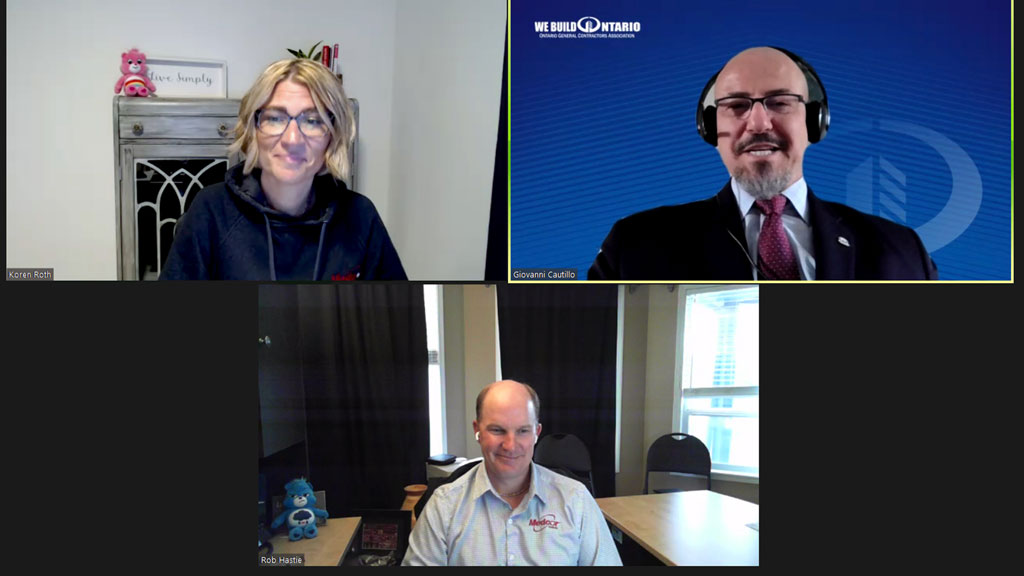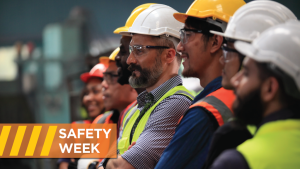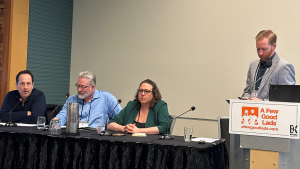Two occupational health care experts who served as panellists at a recent Ontario General Contractors Association (OGCA) webinar on mental health said not only does an accessible mental health program at workplaces lead to more focused, efficient, productive and loyal workers, it could save lives.
The OGCA joined with Alberta-based workplace health services provider Medcor Canada on Sept. 15 to present a session billed as Understanding Mental Well-Being in Construction. The presenters were Medcor president Rob Hastie and Koren Roth, manager of mental health and well-being with the firm.
OGCA president Giovanni Cautillo, the panel host, said mental health care was dear to his heart and noted the OGCA is working on developing an affinity program for its members.
“COVID has been a catalyst for more issues related to mental health, due to the stress from the threat of COVID,” said Cautillo.
“It serves to elevate the attention that employers put on mental wellness for their employees. And it turned it from more of an obscure and rather uncomfortable position to be in to one that’s fully accepted and discussed. And again, it falls into the fit for duty category.”
Cautillo noted mental health in the workplace is costing Canada’s economy $51 billion a year, with 500,000 people off work due to anxiety and depression on any given day. So every workplace can benefit from better access to mental health treatment, he said.
“All that you need to know is there’s a light at the end of the tunnel and it’s not a train coming at you, it’s actually salvation.”
Medcor provides medical and safety services to businesses across Canada including many in the construction sector, sometimes operating at jobsites out of trailers. The construction workforce, generally male-dominated, offers special challenges because the macho culture in the sector creates a stigma inhibiting workers from seeking help, said Roth.
She told the story of one male employee who told her in a recent counselling session that he was desperate to talk to someone but the earliest that his firm’s Employee Assistance Plan could accommodate him with an appointment with a professional therapist was two-and-a-half weeks.
“He was so discouraged,” said Roth. “Frustrated, angry, really resentful, and shut down. Like, ‘That’s fine. You don’t have time for me, I’m not interested.’
“He actually said to me, ‘Thank God for you.’ And this makes me emotional and I’m sorry. ‘I don’t know what I would do if I couldn’t have reached out to you today.’ ”
To break the stigma of seeking help, Hastie said, employers need to find ways to encourage regular dialogue about mental health.
“The more training, the more discussion, the more sharing and talking about it, it helps break that stigma which really is what holds people back from wanting to reach out and talk to somebody,” he said. “It’s not a sign of weakness to reach out to somebody, it’s a sign of strength, but people still feel ashamed to do it.”
While men may resist treatment at the beginning, Roth finds they are diligent in taking the experience seriously.
“The men in my experience are not only booking, but they’re the ones who booked the weekly 10 a.m. on a Monday,” she said. “I see this so significantly in men that if they buy into it, and it has been driven from the top of the company saying this is important, we’ve paid for it, we want you to use it, and they know it’s accessible to them, the people who reach out and try it are weekly or bi-weekly. ‘I need my check-in.’ ”
Cautillo raised negative attitudes that exist at some workplaces, noting nooses on construction worksites last year and bullying. Hastie said COVID has had a big impact on people’s lives and has increased stress in all facets, leading to antisocial behaviour.
Roth commented, “If something else in your life is feeling out of your control, like somebody is bullying you, or some of these other things that might be happening, it’s amplified right now, because we feel so out of control in the world in general.
“So lots of it is discussion around, we can’t control the things that are happening to us, but we can control our reaction to them.”
In the end, Hastie advised, construction employers need to do a better job of looking after their employees in all ways.
“Because without them, we don’t have a business,” he said. “Our employees are our ambassadors, they’re the ones out there in the field, performing the top-quality work.”
Follow the author on Twitter @DonWall_DCN.










—-“… helps break that stigma which really is what holds people back from wanting to reach out and talk to somebody,” he said.
Actually, were we open and honest with ourselves, it is not “the stigma”, but those of us taught and teaching it.
Harold A Maio